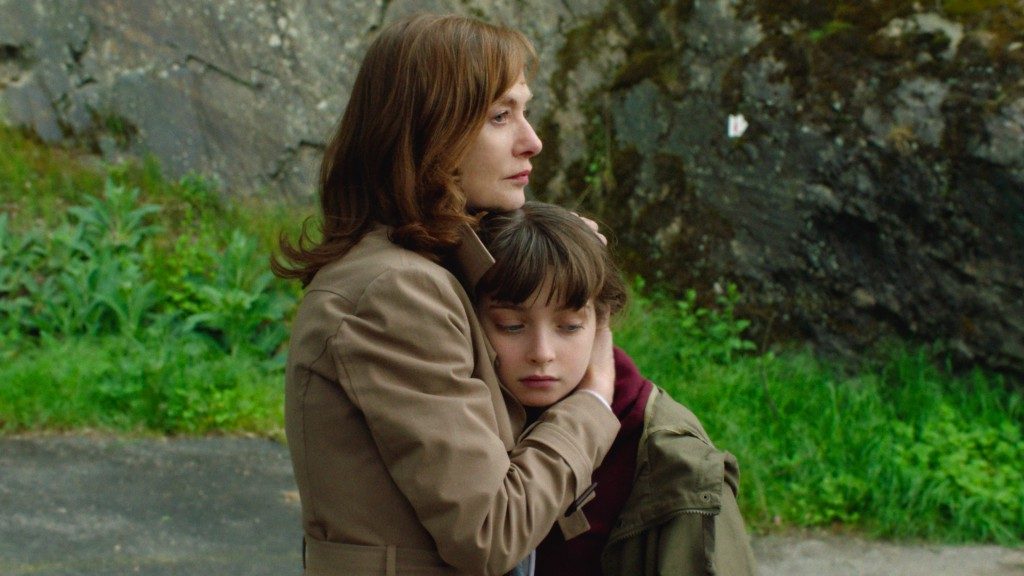Laura Schroeder was born in Luxembourg. Her works have screened at festivals worldwide. After several self-produced films, she wrote and directed the short films “Senteurs” and “Double Saut.” Her other credits include “The Treasure Knights — The Secret of Melusina” and “Blurred Borders.”
“Barrage” will premiere at the 2017 Berlin International Film Festival on February 10.
W&H: Describe the film for us in your own words.
LS: “Barrage” is an unsettling journey into the woods and the world of motherly love. It’s a film about Catherine, a young woman who is struggling. She’s longing for a new beginning and hoping to achieve this by reconnecting with her daughter Alba. Only things don’t turn out the way she was expecting them to: Her old demons catch up with her and she needs to realize that jumping head first probably wasn’t the best idea.
W&H: What drew you to this story?
LS: I came up with the original idea of the story a few years ago and then co-wrote the script with the French novelist Marie Nimier. I wanted to tell the story of a disillusion, of a failure that comes from within. The reasons for Catherine’s failure with Alba don’t come from the outside, another character, or the environment: She is her only true opponent, and nobody else.
I liked the idea of developing a character like Catherine, mysterious and subversive. At first glance, she’s not very sympathetic, and I wanted to try to make her sympathetic as the story progressed. Catherine must live through an experience to free herself from a burden in order to move forward. My work deals a lot with that — women who try to free themselves from something.
Furthermore, I wanted to write a film about motherhood and filiation, but more from the point of view of the child: What does it mean to be someone’s child and what does it imply to have a child of your own?
W&H: What do you want people to think about when they are leaving the theater?
LS: “Barrage” is carried by its atmospheres, by the images of the lake and the woods, the music, and most of all the faces of the actresses. I actually don’t want people to think when they come out of the film. I want them to be in a kind of haze and still under the influence of Catherine’s stare and her journey, trying to figure out what she could have done to make it right.
W&H: What was the biggest challenge in making the film?
LS: Making a film is a challenge from beginning till end. There are so many stages and each stage has its own challenges. But that’s exactly why I like to do what I do.
W&H: How did you get your film funded? Share some insights into how you got the film made.
LS: The film got funded by the Luxembourg Film Fund, as well as the Belgian Wallimage. It is a Luxembourgish-Belgian-French co-production, countries where films are mainly publicly funded, which is a privilege.
W&H: What does it mean for you to have your film play at Berlin?
LS: Berlin, the festival and the city, have always held a special place to me. I remember coming to the festival for the first time in 2008, just after shooting my first short film. I was assisting others back then and I even had to invent a fake identity to get an accreditation.
So it is very moving to have the world premiere of the film in Berlin. The festival is also a great platform for the film to reach an international audience.
W&H: What’s the best and worst advice you’ve received?
LS: Best advice: If you have the slightest doubt about the take you just did, do it again. And again and again until it feels right.
Worst advice: None. I must have forgotten all about it.
W&H: What advice do you have for other female directors?
LS: Make only as many compromises as you think your work can handle without losing what makes it specifically yours.
W&H: Name your favorite woman-directed film and why.
LS: “Jeanne Dielman, 23, quai du Commerce, 1080 Bruxelles” by Chantal Akerman, for its meticulous point-of-view and boldness.
W&H: Have you seen opportunities for women filmmakers increase over the last year due to the increased attention paid to the issue? If someone asked you what you thought needed to be done to get women more opportunities to direct, what would be your answer?
LS: Society needs to learn to trust women in leadership positions.
My film is not only made by a woman and about women, I am also very proud to have chosen women in key positions. For example, the director of photography and the production designer who worked on “Barrage” are women. I chose them because they are people I have complete confidence in. They are talented people whose work I value without ever [worrying] about their gender.







